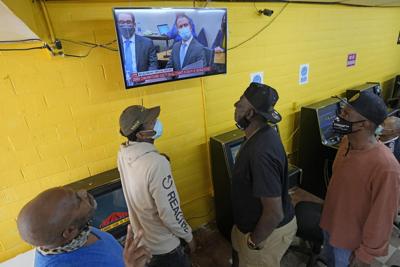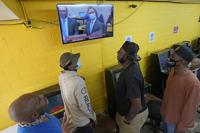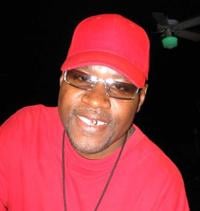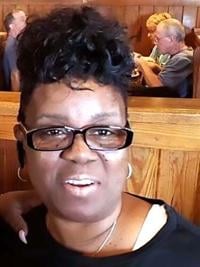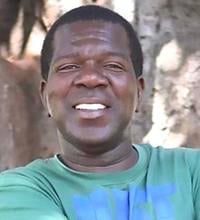As I watched the Derek Chauvin verdict announcement, waves of relief washed over me. And while many around the country savored this moment of actual accountability for a bad law enforcement actor, we need to understand why the reaction has been so visceral.
It’s partly because such a conviction of a police officer is a rare occurrence. There have been only seven murder convictions of officers for fatal police shootings since 2005 in the U.S., which means the chances of a killing by the police leading to a murder conviction are about one in 2,000.
Every year, police shoot and kill roughly 1,000 people. On a broader level, the only police officers convicted for high-profile killings in recent history are Roy Oliver (victim: Jordan Edwards, Texas), Jason Van Dyke (victim: Laquan McDonald, Illinois) and Amber Guyger (victim: Botham Jean, Texas).
Closer to home In South Florida, the Palm Beach and Broward state attorneys have also successfully prosecuted a police shooting case.
So what happens now? Chauvin faces 12 1/2 to 40 years in prison for killing George Floyd. Prosecutors filed a motion for an enhanced sentence so they can request more prison time for a first-time offender. Normally, 12 1/2 years is the starting point, but because this crime happened in broad daylight, on a busy street and in front of children, prosecutors want the ability to ask for the maximum penalty.
The co-defendants – former Minneapolis police officers Tou Thao, Thomas Lane and J. Alexander Kueng – may take a plea, although they have a better defense than Chauvin did. They did not actually kill Floyd, and can argue that they verbally tried to intervene but Chauvin, the ranking officer, would not listen.
Civilian complaints must be taken seriously moving forward. As we learned, Chauvin had 18 complaints prior to killing Floyd; Ft. Lauderdale Police Officer Steven Pohorence, who pushed an unarmed protester during a Black Lives Matter protest last May, had 79 previous reviews for excessive force. City of Homestead Police Officer Anthony Green, who killed Edward Foster in 2015, has shot six people, killing three (including Foster), yet remains on the force.
There is a clear pattern of escalating violence when early disciplinary intervention does not occur. City of Miami Police Chief Art Acevedo, during an interview on “The South Florida Roundup” on WLRN, said he was looking at firing 10 or more officers who have histories of “uses of force that are not objectively reasonable.” This is the type of accountability that will impact policing in a positive manner.
We also need to examine the power of police unions. Although I grew up in a union household (my mother was an active member of the local 1199 health and hospital workers union in New York) and saw the good that unions can do firsthand, police unions can unfortunately take things to another level.
Police unions sometimes block progress – legislation or ideas – that would make policing better. They would rather go to battle than adapt or change. In many cases, they fight increased accountability. They are the reason that bad apples remain on the force even after clear wrongdoing. In some instances, they work to intimidate and bully those elected officials who do seek accountability, with cases in point being Kim Gardner in St. Louis, Aramis Ayala in Orlando, Fla., and Marilyn Mosby in Baltimore.
While chiefs and police around the nation condemned Chauvin’s actions (rising to the level of the Minneapolis chief of police and the head of the Minneapolis Police homicide unit testifying against him), the union paid his bail, funded his defense and vociferously defended him. Several chiefs have told me privately that as much as they want to dismiss bad cops – they file the paperwork and go through the process – the union in the end blocks the dismissal. You will never see a surgeon’s union protecting a doctor who keeps having patients die on the table.
The only way forward is to prosecute bad cops, because a criminal case or a conviction may be enough for a dismissal to stick.
There’s no question that policing is a tough job. However, the majority of officers never fire their weapon, much less even draw it from its holster. I think of Lt. Archie McKay, who conducts tours of the Historic Black Police Precinct in Overtown, who’s discussed the racism he faced as the first Black officer in Miami. Lt. McKay had to police with no gun or car (while white officers had both) and use his wits to de-escalate situations. And no, there was no training for this in the 1950s. If there was, he wouldn’t have gotten it due to segregation.
That is the caliber of officer that needs to be promoted and supported, not those who regularly disrespect the community. A law enforcement commentator on CNN said something similar. His father, who was also a police officer, told him that his best weapon is his mouth – used to de-escalate volatile situations.
From a legislative standpoint, the George Floyd Justice in Policing Act has passed in the House and is supported by President Biden. Locally, The Legislative Black Caucus bill is a start, but doesn’t go far enough. Unfortunately, the political climate in Tallahassee makes real reform an uphill battle. Training, banning chokeholds, collecting data on use of force and mandating officer intervention in excessive force cases are good, but basic. That’s Kerner Commission, 1968.
We need to revisit qualified immunity. We need the ability to hold officers accountable and to decertify bad actors so they cannot move to another county and harm other communities. We need elected prosecutors who will file and see these cases through. Without accountability, there will be no change.
I echo Minnesota Attorney General Keith Ellison’s comments. This is not justice, it’s accountability. Justice takes time. It will take time to undo 400 years of injustice and racism. But Chauvin’s verdict is a hopeful first step.
Here in Miami-Dade County, the next step should be filling empty seats on the civilian police oversight board that former Commissioner Barbara Jordan fought hard to establish before leaving office. Eight months later, we're still waiting for it to get off the ground. And that is shameful.
Melba Pearson is an attorney, writer, speaker, wife and expert on criminal justice issues. She previously served as a homicide prosecutor in Miami, and was deputy director of the ACLU of Florida. Follow her on Twitter @ResLegalDiva.


